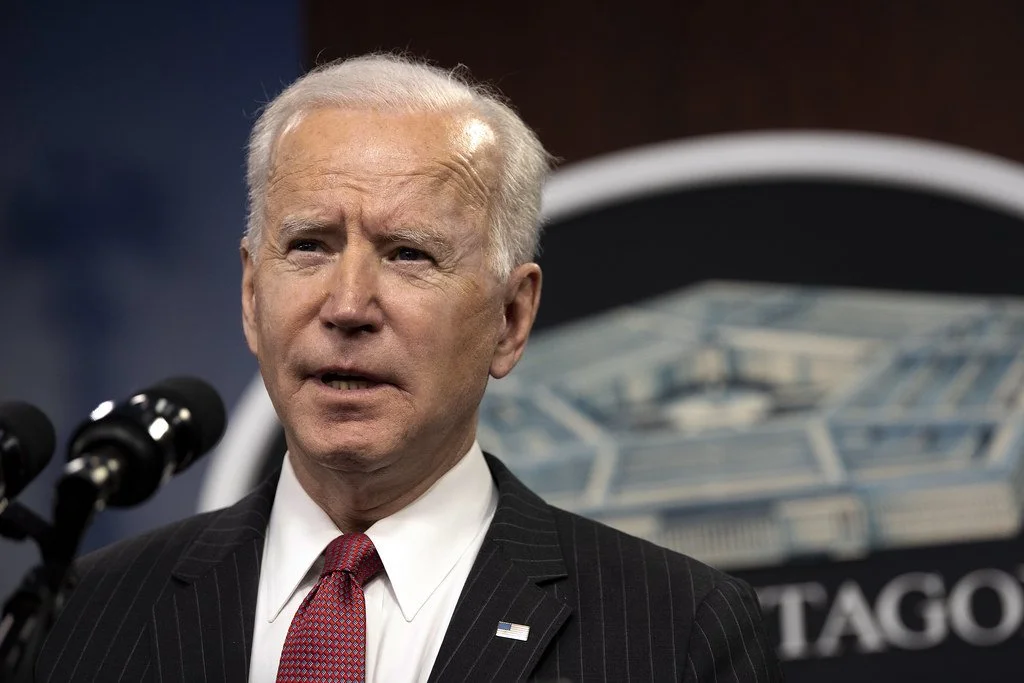Biden Administration "considering" dropping Assange charges
Photo credit: Lisa Ferdinando for the Department of Defense, licensed under CC BY 2.0
Joe Biden has indicated that, in the last few months before the US Presidential election in November, his administration may drop its prosecution of WikiLeaks Publisher Julian Assange.
In response to a question on Wednesday 10 April about whether the administration was considering Australia's request that Assange be allowed to return home, Biden said "We're considering it."
Today, Thursday 11 April, marks five years since Assange's asylum at London's Ecuadorian embassy was revoked, when he was promptly arrested by UK police. Since then, he has been imprisoned in the UK's highest-security prison, HMP Belmarsh, while his legal team has fought against his extradition to the United States.
The 18-count US indictment against Julian Assange, which has been superseded twice since his arrest, is widely recognised to have dire implications for press freedom and in particular the ability of journalists to communicate with their sources. It marks the first time the US Department of Justice has crossed the rubicon and charged a publisher with a violation of the 1917 Espionage Act.
The past few months have seen head of government level calls for the prosecution to be dropped. In Feburary, Australia's lower house of parliament passed a resolution calling for Assange to be returned to his home country. The resolution was supported by the Labor government and the Australian Prime Minister Anthony Albanese. Then, in March, German Chancellor Olaf Scholtz made public his opposition to Assange's extradition.
In an interview with AP, Albanese welcomed President Biden's statement, describing it as "encouraging."
"We have raised, on behalf of Mr Assange, Australia's national interest that enough is enough, that this needs to be brought to a conclusion. And we've raised it at every level of government in every possible way."
A decision cannot come soon enough
The incompatibility of the US charges with European standards of press freedom under Article 10 of the European Convention on Human Rights was a key issue during the last round of extradition hearings at the High Court in London.
Only two weeks ago, the judges who heard that latest appeal ruled that the extradition process should be paused in order that the US government be given a chance to provide assurances on a limited number of issues (non-imposition of the death penalty and the ability to invoke First Amendment rights).
Should assurances be made and accepted as satisfactory by the High Court, that marks the end of Assange's ability to fight extradition in the UK court system. He would then have to turn to the European Court of Human Rights in Strasbourg to take his case further.
All of that would be unnecessary if the United States government decides to halt the prosecution entirely. There had already been reports that the US authorities had been prepared to drop the most damaging of the charges Assange is facing. Though Biden's comment on Wednesday seems to point towards this, the timetable for any firm decision is unclear.
Like practically every other organisation concerned with freedom of expression - both for its own sake, and for the sake of citizens' ability to check official power and participate effectively in the political process - Blueprint for Free Speech believes that dropping this profoundly damaging case would clearly be the right move. Five years after Julian Assange was remanded to HMP Belmarsh, the mental and physical ramifications of which have been repeatedly outlined in legal proceedings, it cannot come soon enough.

